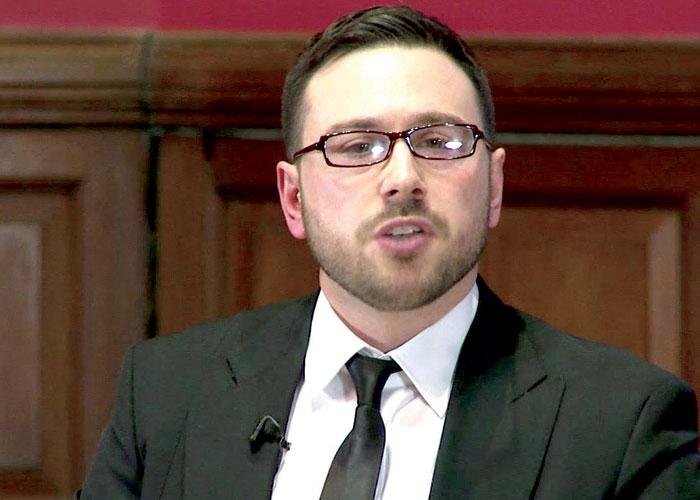Adam Deen, a former Islamic extremist, is now head of the counterterrorism think tank Quilliam Foundation, which is preparing to open a branch in the United States. Photo courtesy of The Arab Weekly
Adam Deen is an ex-Islamic extremist seeking to fight Islamic extremism. After being promoted to managing director of the Quilliam Foundation, a counter-extremism think tank, Deen finds himself confronting an increasingly polarized discourse about Islam in the West.
"I think my new role is more to build on the success of Quilliam, not so much to change what they've been doing but to complement it. One area we particularly need to focus on is claiming more of the ground in the Islamic intellectual space, putting forward a more moderate and pluralistic reading of Islam," Deen told The Arab Weekly in an interview.
Deen is a former senior member of the banned al- Muhajiroun group, which was led by infamous British preacher Anjem Choudary, who has been sentenced to more than five years in prison after being convicted on charges of inciting support for the Islamic State.
The son of Turkish immigrants, Deen had a keen interest in learning about Islam as a young man and became radicalized while attending university. After becoming disillusioned with radical Islam over a period of years, he left al-Muhajiroun in the mid-2000s to pursue a more tolerant vision of Islam. He joined Quilliam in November 2015 as head of outreach and in September was promoted to managing director.
"Being a former extremist, we have an insight into the inner workings of the extremist mindset and the ideas they hold on to," Deen said. "I think extremism cannot be totally grasped unless you were one before. As much as it is to do with ideas, it's also experiential."
For organizations such as the Quilliam Foundation, perhaps the biggest problem is that it is ploughing a lonely furrow regarding the popular discourse about Islam in the West.
"One of the biggest challenges in this field is that we have two kinds of polarized views. One that says that it [extremism] has nothing to do with Islam... and the other side that says it's everything to do with Islam and Islam is the problem. Quilliam is the middle ground, the voice of reason, to balance these two out," he said.
"We represent the silent majority [of Muslims] that want a more inclusive and tolerant Islam. I think we speak for that majority who have been silent for some time and we want to take someone who is at the crossroads and help him."
Deen has little time for those Muslims who refuse to acknowledge the problems that Islam is facing, particularly the rise of Islamic extremism. "If we understand Islam to be our scholarly tradition, our interpretation, then we have to say 'Yes, there is a problem.'"
"The challenge is to say, 'Yes, some of our great scholars in the past got it wrong.' And that takes courage. There is a lack of critical introspection [by Muslims]. We are being held back by a [scholarly] tradition that is unquestioningly revered. That needs to change," Deen said.
It is views such as this that have led Deen and the Quilliam Foundation to being accused of being in the government's pocket, particularly their backing of the government's counterterrorism Prevent strategy, which is strongly opposed by some sections of society. Horror stories of teachers referring students to the authorities for donning the hijab or discussing religion have been widely reported in the media after the Prevent Order went into effect earlier this year.
"In principle, Prevent makes perfect sense. It is about safeguarding children in the same way we would try to safeguard children from any other kind of toxic view," Deen said. "But it has had some problems and what it fundamentally comes down to is a training gap. That training gap has resulted in Prevent being misapplied.
"I don't always think it is malicious. I think there is a kind of agenda that is driven by certain Islamist organizations that want to spin it that way," he said.
Quilliam is seeking to provide teachers with training to help them spot genuine signs of radicalization and deal with this phenomenon.
"The overall response [from teachers] is one that is quite anxious, sometimes even hostile but by the end of the training... there's a sense of relief actually that now they understand and have the confidence to tackle these issues," Deen said.
In addition to its domestic operations, Quilliam has set its sights on new horizons, including North America where the think tank is preparing to open a branch in the United States at a time when discourse about Islam and Muslims has been a major feature of a divisive presidential election campaign season.
"There is a place for Quilliam in the U.S. and I think it's going to be even more important given the heightened tensions now," Deen said.
This article originally appeared at The Arab Weekly.















